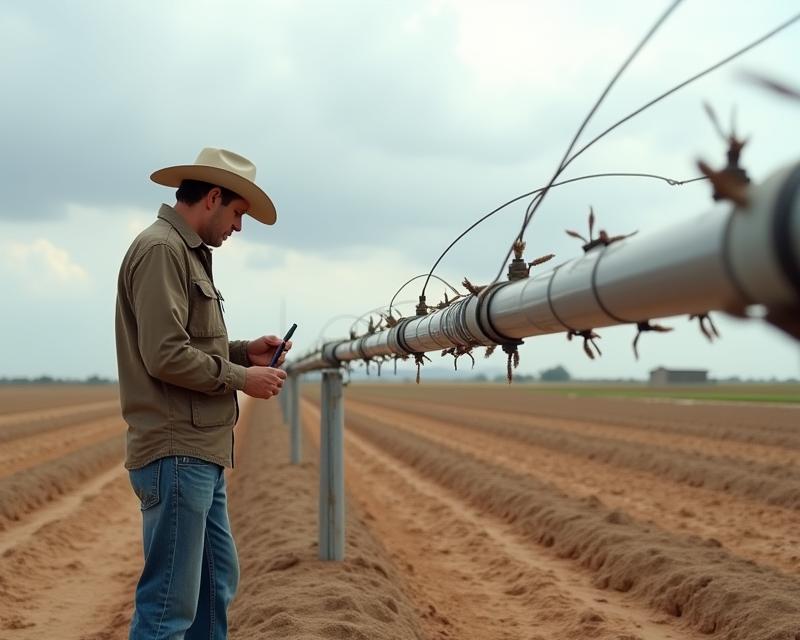Water Wise Farming in a Changing Climate
Publish in Sustainable Farming el 21/07/2025 20:34
Water Management and Climate Change
Hey everyone! As farmers, gardeners, and ranchers, we all know how vital water is to our livelihoods. But with climate change bringing more unpredictable weather patterns – from prolonged droughts to intense floods – managing water resources effectively is more critical than ever. It's not just about getting enough water; it's about using it wisely and sustainably for the long term.

Understanding the Challenge
Climate change is disrupting traditional water cycles. We're seeing shifts in rainfall, increased evaporation rates, and more frequent extreme weather events. This means water availability can fluctuate dramatically, making it harder to plan planting schedules, irrigate crops, and support livestock. Droughts can severely impact yields and livestock health, while floods can damage fields and infrastructure. Ignoring these changes puts your farm's future at risk.
Smart Water Management Strategies
So, what can we do? There are many strategies to improve water management. Here are a few key ideas:
- Efficient Irrigation: Ditch the flood irrigation! Invest in drip irrigation or micro-sprinklers. These deliver water directly to the plant roots, minimizing water loss through evaporation.
- Rainwater Harvesting: Collect rainwater from rooftops and other surfaces. This stored water can be used for irrigation, reducing reliance on municipal water sources.
- Soil Health is Key: Healthy soil acts like a sponge, absorbing and retaining more water. Practice no-till farming, cover cropping, and composting to improve soil structure and water-holding capacity.
- Water-Wise Crop Selection: Choose crops that are drought-tolerant or require less water. Consider native plants and varieties adapted to your local climate.
- Monitor Water Usage: Regularly check your water meters and irrigation systems for leaks or inefficiencies. Use soil moisture sensors to avoid overwatering.
Looking Ahead
Adapting to climate change requires a proactive approach. Stay informed about local water forecasts and regulations. Explore government programs and incentives that support water conservation efforts. And most importantly, be open to experimenting with new technologies and practices. By embracing sustainable water management, we can protect our farms, our communities, and our planet for generations to come. It’s about building resilience and ensuring a thriving future for agriculture in a changing world.





